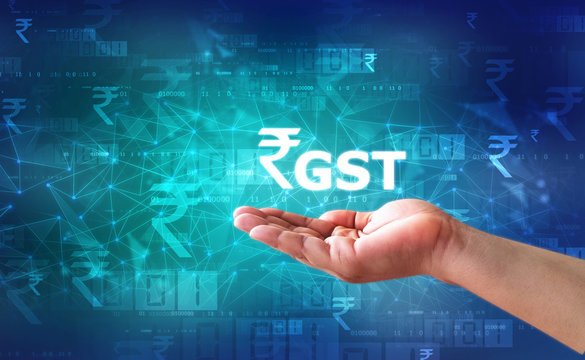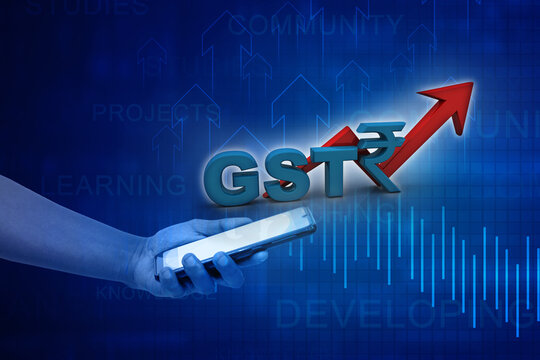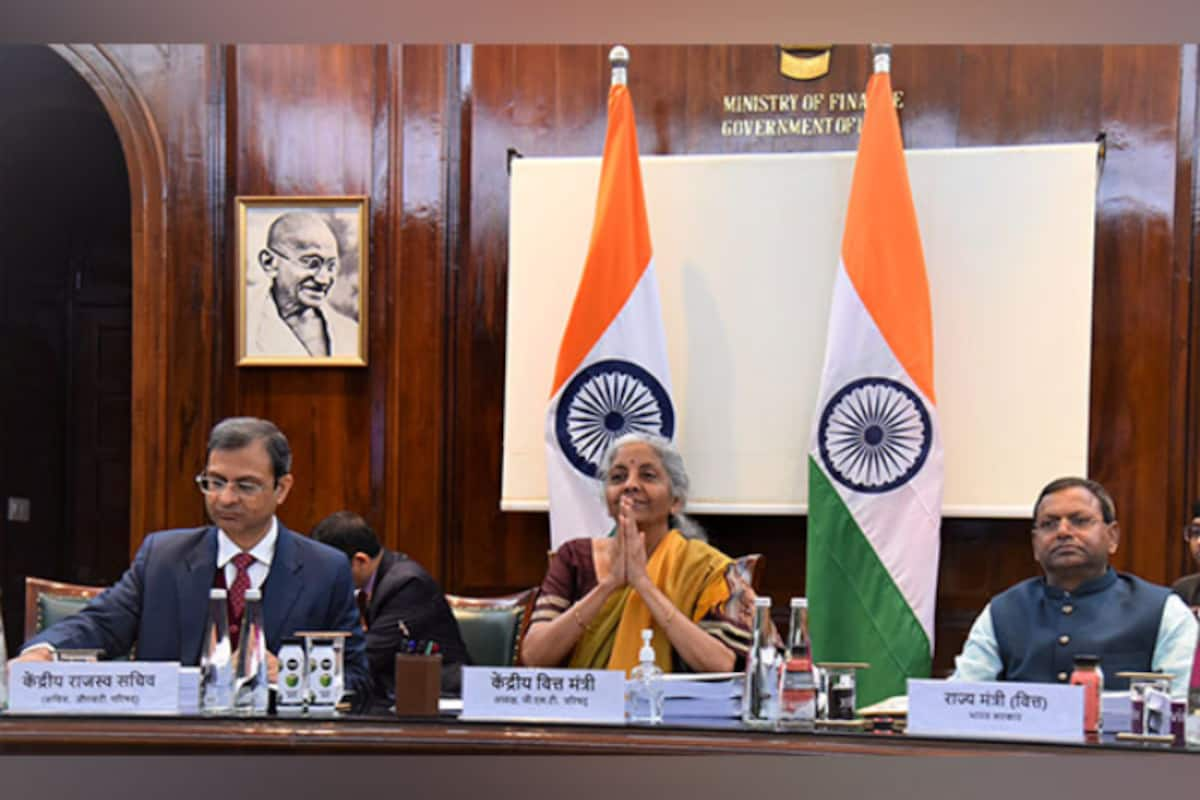50th GST Council meet gets initiated; taxation of online gaming, utility vehicles on agenda

50th GST Council meet gets underway; taxation of online gaming, utility vehicles on agenda
‘GST Council – 50 steps towards a journey’ is a short film released by Finance Minister Nirmala Sitharaman at the beginning of the 50th GST Council meeting. The film aims to highlight the progress made by the GST Council over the course of its journey.
The Goods and Services Tax (GST) Council is a constitutional body in India responsible for making key decisions related to the GST, which is a comprehensive indirect tax levied on the supply of goods and services. The council consists of representatives from the central and state governments.

The 50th GST Council meeting, held in the national capital, is expected to discuss and deliberate on several important issues. One of the topics on the agenda is the taxation of online gaming. With the increasing popularity of online gaming platforms, there is a need to determine the appropriate tax treatment for such services.
Another matter to be addressed is the definition of utility vehicles. This issue pertains to the classification and taxation of vehicles that are primarily used for commercial purposes or for specific utility functions.

Additionally, the council will focus on tightening the norms for registration and claiming of Input Tax Credit (ITC). Input Tax Credit allows businesses to claim a credit for the tax paid on inputs used in the production or supply of goods and services. Strengthening the registration and ITC claiming processes helps prevent tax evasion and ensures the integrity of the GST system.
These deliberations during the 50th GST Council meeting demonstrate the ongoing efforts of the Indian government to streamline and refine the GST framework. The GST Council has been instrumental in implementing and refining the GST since its introduction in July 2017, and this short film serves as a tribute to the council’s accomplishments and progress made over the course of its journey.
In 49 meetings held so far, the Council has taken approximately 1,500 decisions in the spirit of co-operative federalism, the office of Nirmala Sitharaman tweeted.
“The 50th meeting is a milestone which indicates success of cooperative federalism and establishment of a good & simple tax regime,” the tweet said.
Sitharaman also released a Special Cover and customised ‘myStamp’, which was presented to her by the Chief Post Master General, Delhi Circle India Post Office, the finance ministry tweeted.
The GST Council is chaired by the Union Finance Minister and comprises ministers from every state and Union Territory.
The Council is also likely to clarify on GST rates applicable on food and beverages sold in multiplexes, exempt GST on import of cancer drug Dinutuximab, and Food for Special Medical Purposes (FSMP) used in the treatment of rare diseases.
It is also expected to finalise contours for setting up an appellate tribunal, and demand of the industry for reimbursement of full Central Goods and Services Tax (CGST) and 50 per cent Integrated Goods and Services Tax (IGST) in 11 hill states under the ‘scheme for budgetary support’.
Also, mandatory physical verification of the business premises of “high risk” applicants before granting of GST registration, as well as reduced time for submitting PAN-linked bank account details to GST authorities is expected to be discussed.

A new rule in GST law under which businesses would be required to explain the reasons for excess input tax credit (ITC) claimed or deposit the amount with the exchequer is slated to be discussed.
The Law Committee, consisting of tax officers from both the central and state governments, has provided its opinion on a particular matter. According to their opinion, if the Input Tax Credit (ITC) claimed by a registered person in their GSTR-3B return exceeds the amount of ITC available as per the auto-generated statement GSTR-2B by a specified threshold, certain actions may be taken.
In this scenario, the registered person will be notified on the tax portal regarding the difference between the ITC claimed in GSTR-3B and the ITC available in GSTR-2B. They will be directed to either explain the difference or pay the excess ITC along with any applicable interest charges.
To understand this in detail, let’s break it down:
1. Input Tax Credit (ITC): In the Goods and Services Tax (GST) system, registered persons can claim ITC, which is the tax paid on inputs (purchases) used for business purposes. It can be used to offset the GST liability on output (sales). This ensures that taxes are paid only on the value added at each stage of the supply chain.
2. GSTR-3B Return: GSTR-3B is a self-declaration summary return filed by registered taxpayers on a monthly basis. It includes details of both outward and inward supplies, along with the ITC claimed.
3. GSTR-2B Statement: GSTR-2B is an auto-generated statement that provides information about the ITC available to a registered person based on the invoices uploaded by their suppliers. It helps taxpayers reconcile their ITC claimed in GSTR-3B with the ITC available as per the uploaded invoices.
4. Specified Threshold: The Law Committee has determined a specific threshold beyond which a difference between the ITC claimed in GSTR-3B and the ITC available in GSTR-2B will trigger further action. The threshold may vary based on the committee’s recommendations or applicable regulations.
5. Intimation and Direction: If the difference between the ITC claimed and the ITC available exceeds the specified threshold, the registered person will be intimated through the tax portal. This intimation will inform them about the discrepancy and prompt them to take necessary action.
6. Explaining the Difference: The registered person will be given an opportunity to explain the difference between the ITC claimed in GSTR-3B and the ITC available in GSTR-2B. They may need to provide clarifications, furnish additional information, or rectify any errors to justify the discrepancy.
7. Paying Excess ITC with Interest: Alternatively, if the registered person is unable to explain the difference or it is found to be an excessive claim, they will be required to pay the excess ITC along with any applicable interest charges. The interest would be calculated based on the prevailing rates and the period for which the excess ITC remained unadjusted.
These measures aim to ensure the proper utilization of ITC and prevent any misuse or erroneous claims. By intimating the registered person and providing them with an opportunity to explain or rectify the difference, the tax authorities can maintain transparency and fairness in the GST system.

The Committee has suggested that the provision should kick-in, if the difference is more than 20 per cent and more than Rs 25 lakh.
GST Council is likely to take a final call on the recommendation of the Committee in its 50th meeting.
The report of the panel of eight state finance ministers, convened by Meghalaya Chief Minister Conrad Sangma, on taxation of online gaming, horse racing and casinos is also slated to be discussed in the meeting.
The GoM (group of ministers) had a broad agreement that a 28 per cent GST should be levied on all the three supplies, but a consensus eluded on taxability of online games with Goa suggesting that an 18 per cent tax should be levied only on platform fees and contribution to prize pool should be tax exempt.
A final view on taxation rate as well as whether tax is to be levied on the Gross gaming revenue (GGR) or fees charged by the platform; or on the full face value of bets put in by players of online gaming, horse racing and casinos would be taken by the GST Council.
A clarity on taxation of Multi Utility Vehicles (MUV) or multipurpose vehicles or Crossover Utility Vehicles (XUVs) for levy of a 22 per cent compensation cess over and above the 28 per cent GST rate is also expected.
The fitment committee, comprising Centre and state tax officers, has recommended that all utility vehicles, by whatever name called, would attract a 22 per cent cess provided they meet three parameters — length greater than 4-metre, engine capacity greater than 1,500 cc and ground clearance in ‘un-laden condition’ of more than 170 mm.

The fitment committee has also suggested to the GST Council to clarify that food and beverages served in cinema halls be taxed at 5 per cent and not 18 per cent as was being done in some multiplexes.
However, if the sale of cinema ticket and supply of eatables such as popcorn or cold drinks etc. are clubbed and sold together, the entire supply should be treated as composite supply and taxed as per the applicable rate of the principal supply, which in this case is cinema ticket.
Currently, movie tickets below Rs 100 are taxed at 12 per cent, while those above the threshold attract an 18 per cent GST.
Import of cancer medicine Dinutuximab (Qarziba) by individuals for personal use attracts a 12 per cent IGST. The fitment committee said that the medicine, which costs Rs 36 lakh, should be exempted from GST as patients usually raise money through crowdfunding.
Among other things, the Council is also likely to decide on TCS liability of suppliers engaged in e-commerce trading through the government’s Open Network for Digital Commerce.
Also satellite launch services by private players are likely to be exempt from GST.






